WSIS Action Lines C7: e-Science: Post truth on Open Data, Disinformation and Climate Change: Can Technology help?
UNESCO
Session 333
The rapid development of Information and Communication Technologies is transforming the way people are exchanging information with each other. It is also resulting in new narrative for information sharing in all aspects of human civilization, including for climate change.
In today's digital world, data has become one of the most valuable assets for individuals, organizations, and societies. The amount of data that is being generated is increasing exponentially, and it has become crucial to understand the importance of data and how it can benefit the humanity in various ways. Climate change is also intrinsically linked to the availability of quality data and – emphatically put, the presentation thereof, as accurate and reliable information is essential for understanding the problem and developing effective responses. The use of open data has emerged as a powerful tool in addressing climate change, enabling greater transparency, and facilitating collaborations across sectors. However, open data can also be susceptible to disinformation, leading to harmful consequences for climate action.
The quality and availability of climate data can vary widely depending on the region and the type of data being collected. Even when data is collected, often the way data is presented ensues several structural and procedural fallacies. These can result in significant gaps in our understanding of climate change, making it more difficult to develop effective policies and strategies to mitigate and adapt to its effects.
Furthermore, the availability of quality data is critical for monitoring the effectiveness of climate policies and interventions. Openness of quality data on climate change such as emissions, and drivers of the climate change such as consumption are essential for assessing the effectiveness of adaptation strategies.
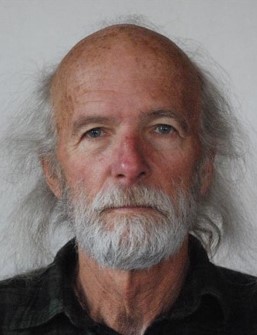
Michael Wadleigh is a scientist and film director who made more than a hundred films and won an Oscar award for the landmark documentary on Woodstock, the apogee of the counterculture movement which launched sustainability into the public discourse as a major topic. For the last decades Michael and his partner Birgit van Munster (DVM) have organized numerous initiatives that communicate and popularize the science on big picture global sustainable development including climate change. They are coordinators of “UNESCO Open data – Only one Earth science” which concentrates on communicating the actions required to stop long term trends to social economic collapse.
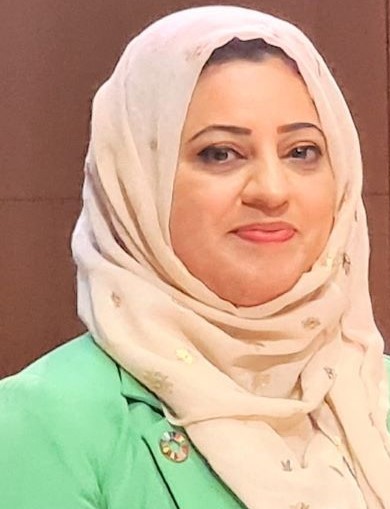.jpg?maxwidth=500)
Dr Naseer provides strategic direction and expert advice in various industries with a particular focus on AI ethics. She was celebrated as one of the top 100 Brilliant Women in AI Ethics™ for 2022 in global recognition of her work in this field. She is member of the MIT Sloan Management Review Responsible AI Expert Panel and also a member of several AI Standardisation Bodies including the International (ISO/IEC/JTC 1) and European (CEN/CLC/JTC 21) standardisation Joint Technical Committees (JTC) at the British Standards Institution (BSI). She is the Director of Research at Huawei R&D UK, where she provides strategic direction on AI research and innovation as part of the company’s work around the development of responsible AI. Dr Naseer is a founding Editorial Board member of the Springer Journal on AI and Ethics, sits on All-Party Parliamentary Group on Data Analytics. Her profile interview has been published as Inspirational Women @We are Tech Women amongst inspirational tech advocates: https://wearetechwomen.com/inspirational-woman-dr-aisha-naseer-director-of-research-huawei-rd-uk/.
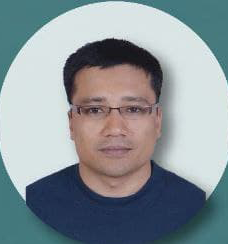
Dr Dhiraj Pradhananga is an Associate Professor of hydrometeorology at Tribhuvan University, Nepal. He started his professional career as a meteorologist at the Department of Hydrology and Meteorology, Government of Nepal (1995-1998). He received his master’s degrees from Tribhuvan University in meteorology and the University of Melbourne, Australia in Environment and a PhD degree from the University of Saskatchewan, Canada in glacier hydrology. He also did postgraduate diplomas in hydrology (Indian Institute of Technology Roorkee, India) and in the management of the environment (Maastricht School of Management, The Netherlands). His work interests are in making useful information usable in water, weather, climate, and the environment sectors. He believes in teamwork and gets involved in students-teachers-scientists (STS) networks and focuses on capacity building of recent graduates and young professionals. He has led and collaborated in four projects funded by APN. He is the President of two NGOs namely The Small Earth Nepal (SEN) and Centre of Research for Environment, Energy and Water (CREEW).
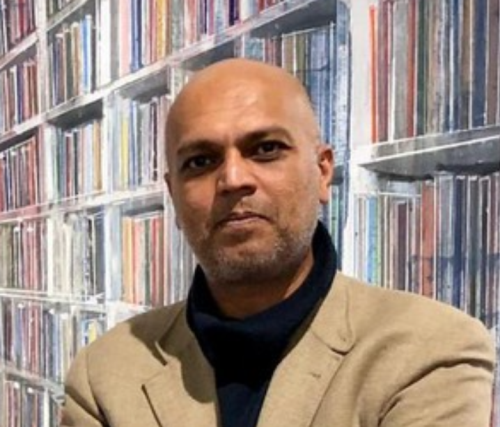
Rajinder Jhol is an experienced communication and information expert with over two decades of experience in digital technology development, diplomacy, mediation, and democracy-building for fragile states. He is the author of books on the future of democracy and the republic, and a novel on the subconscious challenges facing humanity in the technology age. Rajinder provides strategic consultancy services on technology, ethics, and innovation and has worked with UNESCO, the Geneva School of Diplomacy and International Relations, and The Hague Institute for Accountability in the Digital Age. Rajinder is a human potential facilitator for individuals and corporate teams at the Council of Human Development in Switzerland, and working on a sequel to his most recent book, Shine.
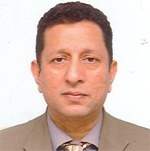
Bhanu Neupane is trained in Hydrosystems, Water Resources Management and Knowledge Management. Currently he is working for UNESCO as an Advisor for ICT and Sciences and Open Solutions. He is also working in the area of Open Data and Artificial Intelligence essentially to improve and increase access to scientific data and information. He is also a visiting professor and regularly teaches courses related to knowledge Management, Multi-criteria Decision-Making, Water Resources management, and Disaster Risk Reduction at Universities.
-
 C7. ICT applications: benefits in all aspects of life — E-environment
C7. ICT applications: benefits in all aspects of life — E-environment
-
 C7. ICT applications: benefits in all aspects of life — E-science
C7. ICT applications: benefits in all aspects of life — E-science
ICTs (Information and Communication Technologies) and data-led misinformation are closely related since ICTs are generally the platforms and instruments utilized to disseminate misinformation.
Disinformation campaigns have become more prevalent in the modern digital age as a result of the availability of information available online. These campaigns aim to sway public opinion or influence behavior by disseminating incorrect or misleading information.
Disinformation is frequently spread via ICTs like social media, search engines, and messaging applications as its main distribution methods. Disinformation may spread quickly and widely on these platforms, reaching a big audience with little effort.
Disinformation campaigns can also be modified to target particular groups or people thanks to the usage of data analytics and targeting tools on these platforms, which increases their effectiveness.
Hence, preventing data-driven misinformation requires robust data governance and control of ICTs. We can ensure that these technologies are not abused to disseminate misinformation and harm society by encouraging transparency, accountability, and responsible data use.
-
 Goal 3: Ensure healthy lives and promote well-being for all
Goal 3: Ensure healthy lives and promote well-being for all
-
 Goal 9: Build resilient infrastructure, promote sustainable industrialization and foster innovation
Goal 9: Build resilient infrastructure, promote sustainable industrialization and foster innovation
-
 Goal 13: Take urgent action to combat climate change and its impacts
Goal 13: Take urgent action to combat climate change and its impacts
-
 Goal 17: Revitalize the global partnership for sustainable development
Goal 17: Revitalize the global partnership for sustainable development